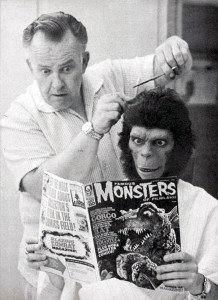The opening of “Beyond the Bones: The Archaeology of Human Networks,” Alun Anderson’s New Scientist review of two books on evolution which suggest that our historical development may have rested more on surviving each other than the elements:
“‘HELL is other people,’ goes Jean-Paul Sartre’s famous line. It is a hell that may have created us and our culture, judging by two new books. They show that the idea that we are defined by our struggles to deal with our fellow humans is shaking up archaeology and how we think about the key force driving human evolution.
The first book is Thinking Big by archaeologists Clive Gamble and John Gowlett and evolutionary psychologist Robin Dunbar. It is the story of a seven-year project – From Lucy to Language – that confronted archaeologists with the social brain hypothesis of human evolution.
The result is a dramatic demolition of the ‘stones and bones’ approach to archaeology, which keeps researchers firmly fixed only on the physical evidence they dig up, and a move towards a grand look at the evolving human mind. There is ‘more to humanity than the bits of chipped bone,’ write the authors as they seek a framework for all human psychological traits, from kinship and laughter to language and ceremony. Old dogma is derided as never moving beyond ‘WYSWTW’ (What You See is What There Was).
The second book is a solo effort by Dunbar, the key thinker behind the social brain hypothesis. In Human Evolution, he lays out the big ideas that the archaeologists later took up. At its heart is the observation that as brains grew bigger, so did the groups we live in: bigger brains were built for and by social life. Modern humans have a cognitive limit of about 150 friends and family (the well-known ‘Dunbar’s number’). Within that circle are an average of five ‘intimates,’ 15 best friends and 50 good friends. Chimps have an average community size of 55.
Studies of living, non-human primates show why you might need bigger brains to live in bigger groups.”

